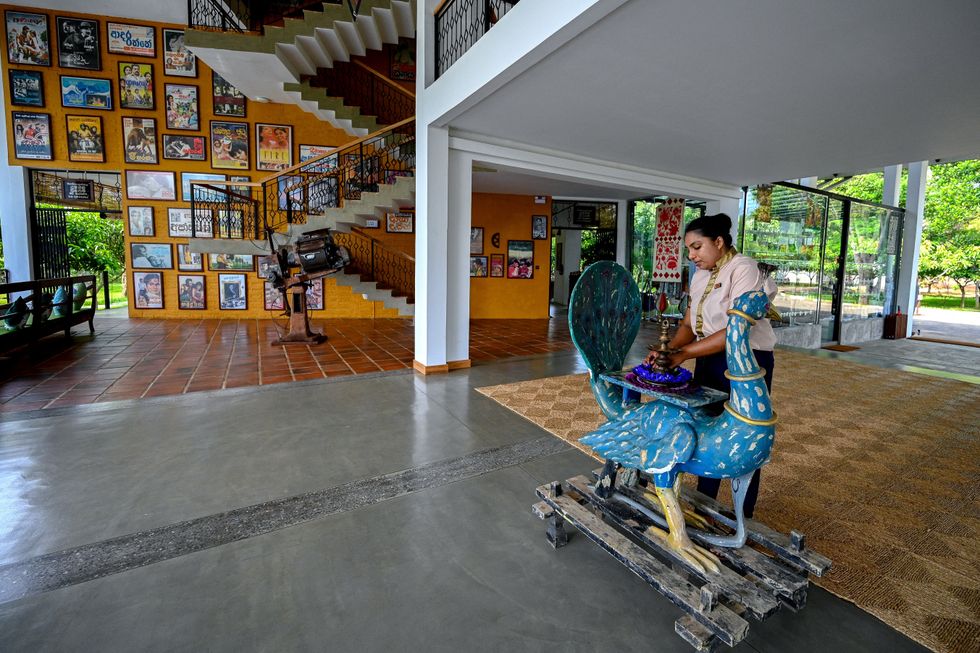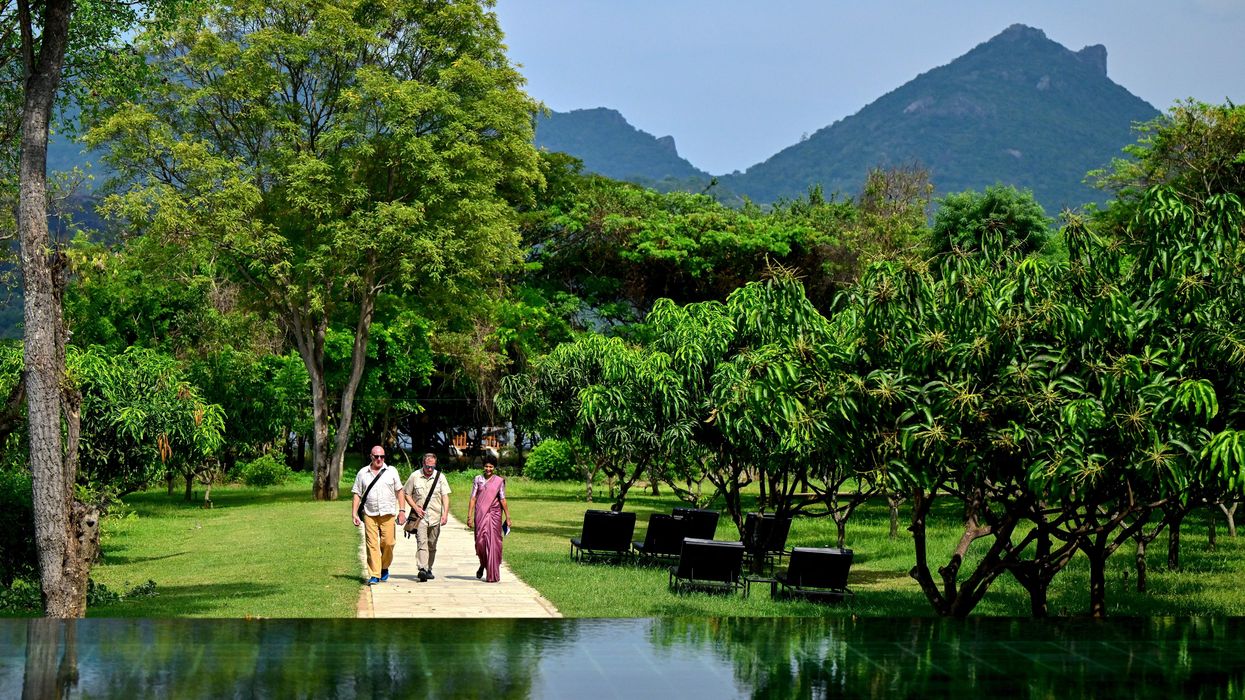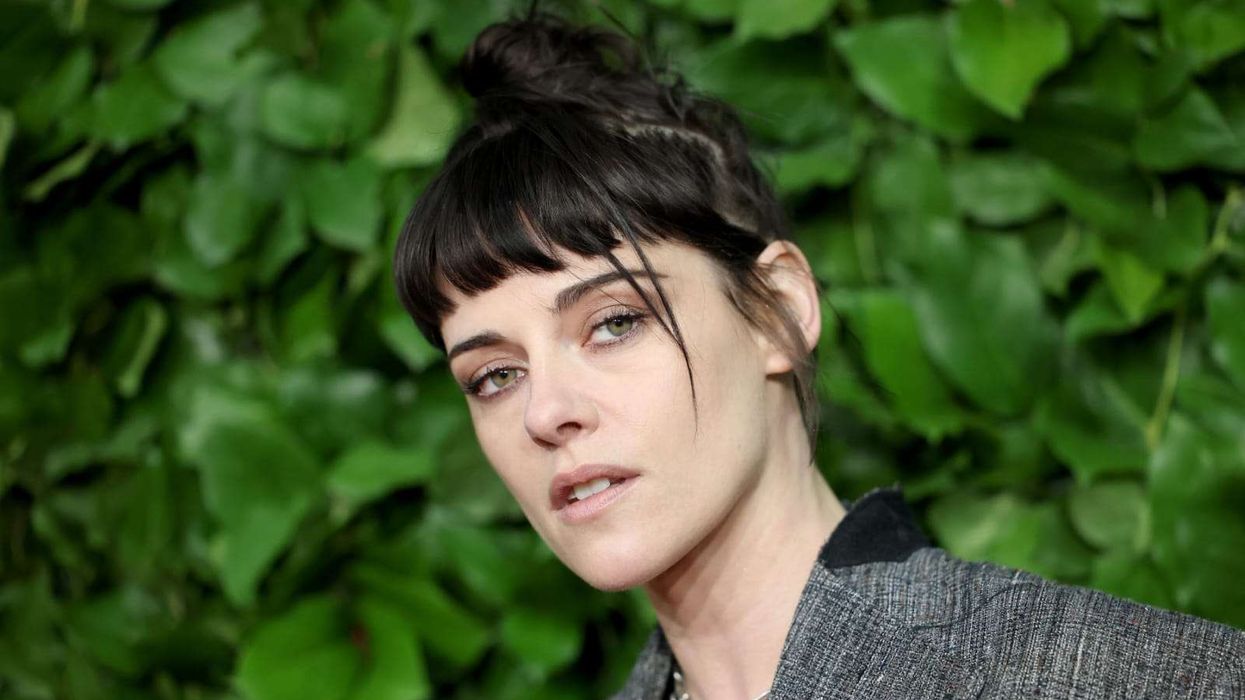A hotel on the shores of Lake Kandalama in the lush hills of central Sri Lanka opened in January with a unique selling point – its staff are exclusively women.
Hotel Amba Yaalu is designed to promote women in a tourism sector where men hold up to 90 per cent of hotel jobs.
“The chairman wanted to start a new hotel with a new concept,” said woman manager Jeewanthi Adhikari.
She explained how the idea sprouted from twin blows that hammered the island’s tourism industry – first Covid-19, then the 2022 financial crisis and subsequent political unrest that toppled the president.
“It has been a really bad time,” the 42-year-old said, noting that when vacancies arose, only men were hired. “We wanted to create opportunities and attract more women.”
Owner Chandra Wickramasinghe, president of the Thema Collection group which runs 14 hotels, said he wanted to showcase what women can do if given the chance.
“Unfortunately, there is no gender equality in Sri Lanka’s hotel industry,” he said.

The blame rests on a mix of factors – lack of training, a culture where women are seen first and foremost as mothers, and very low wages which lead to the perception that women may as well stay at home.
“In our men’s society, when it comes to women working in hotels, it’s one nice girl in the reception and housekeepers to clean,” he said.
“I wanted to go a little bit further.” For the 33 rooms of the Amba Yaalu – meaning “best friend” in the island’s Sinhala language – a team of 75 women handle every task, including those traditionally seen as for men.
They are enthusiastic, like maintenance worker Hansika Rajapaksa.
“People think it’s difficult for women to be involved in maintenance,” the 28-year-old said.
“But after coming here and undergoing training, we also can carry out the work that is expected of us without any difficulty”.
Meanwhile, Dilhani, who gave only her first name, feels confident in her role as a security officer after 15 years in the army.
“I have experienced war... I have manned roadblocks,” she said. “With that experience, it is very easy to do our work here.”
Others want to set an example.
“This a good opportunity for women to demonstrate their talents, to showcase our skills and courage to the new generations”, said 23-year-old chef Upeka Ekanayake.
Old habits were initially hard to break, manager Adhikari said.
“Our experienced staff were used to working around male colleagues,” she said. “Automatically, they waited for someone else to do things, because that is how they had been trained.”
But the owner said he shrugged off the doubts of colleagues.
“Some people didn’t believe in it,” said owner Wickramasinghe, who dismissed the misogynists who scoffed that an all-women team would just “start gossiping”.
The hotel has been welcomed as an “excellent initiative” by Nalin Jayasundera, president of the association of tour operators.
“We want to encourage even more women to join the tourism industry,” he said, adding it made a “very good impression on our customers”.
Clients have taken notice.
“I felt like I could speak up and answer questions ahead of my partner without them looking to him for confirmation,” one Canadian tourist wrote in a review on a booking website.
Women’s rights activist Nimalka Fernando said the initiative was “really path-breaking for Sri Lankan society”.
While she noted Sri Lanka was the first nation to elect a woman as prime minister – Sirimavo Bandaranaike in 1960 – tradition, culture and the labour market continue to block women’s rights.
She pointed out that women dominate the sectors that provide the country with its main sources of income: textiles, tea and foreign remittances.
“Women are treated as an exploitable commodity,” she said. “The important thing now is to give dignity to female labour.”
The Amba Yaalu is only the first step, acknowledges its manager, but it is making a change.
“We have single mothers and mothers with two or three kids,” Adhikari said. “Here, they don’t have to suppress what they want to do in their life.”
Wickramasinghe said it as a way to highlight the lesson he learned as a boy. “I’m inspired by my mother... she became a single parent with eight children,” he said.
“She was working in a hospital at the same time and she managed very well. So I realised the power of a woman... that they can do wonders.” (AFP)




